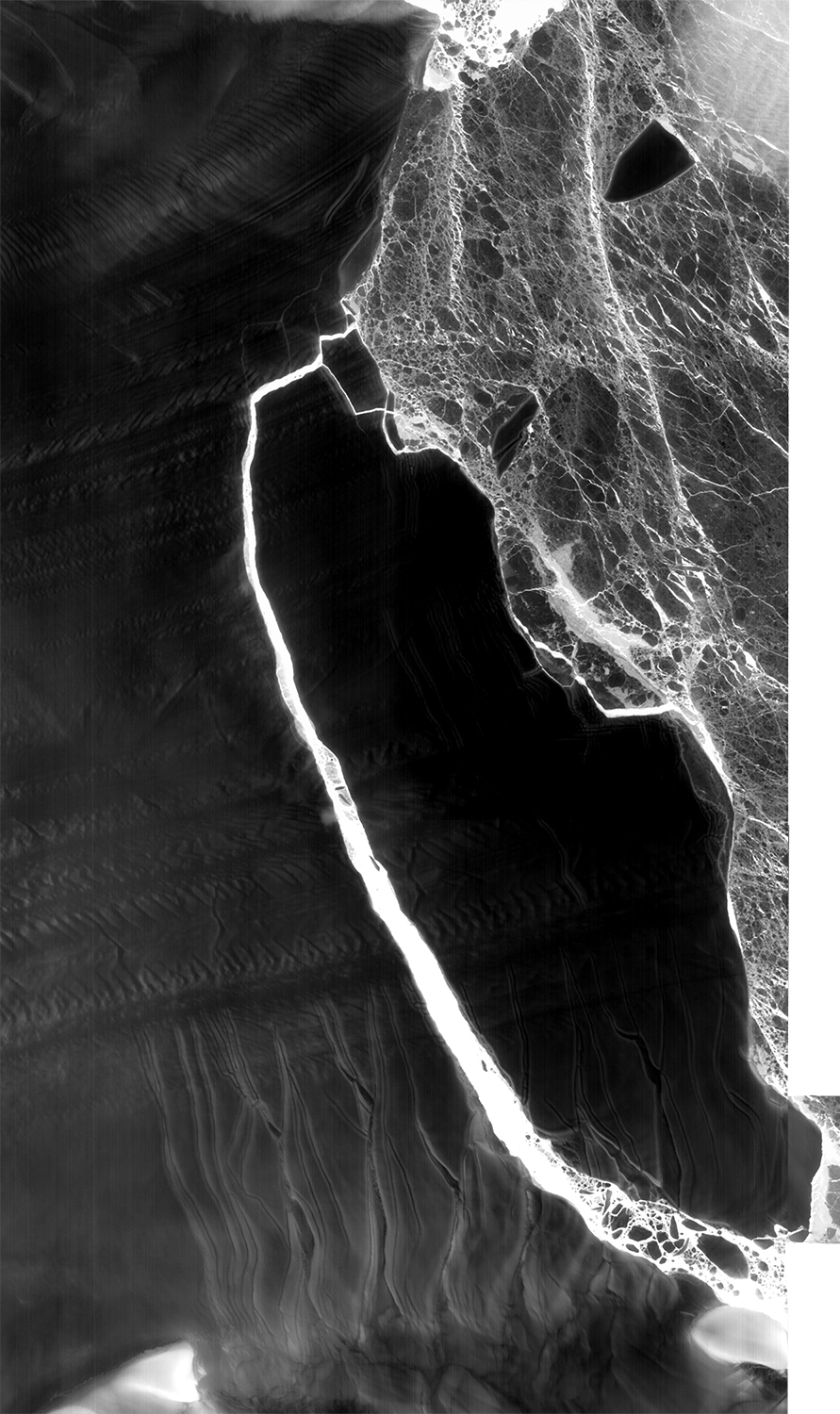
Gorgeous new images reveal the movement of an enormous, trillion-ton iceberg that recently broke off from the Larsen C ice shelf in Antarctica
Right now, it is winter in Antarctica and the coldest continent is shrouded in a long night. But the movement of the Delaware-size hunk of ice was captured thanks to infrared satellite imagery from NASA that can see in the dark. [See Images of Larsen C Ice Shelf and Rift]
The massive iceberg's split from the continent had been predicted for years, due to the rapid movement of the ice shelf. Sometime between July 10 and July 12, the gargantuan hunk of ice, weighing in at a mind-boggling trillion tons, finally broke off, shaving off between 9 and 12 percent of the ice shelf's total mass, Live Science previously reported.

The new images were snapped between July 14 and July 21 by the Thermal Infrared Sensor aboard NASA's Landsat 8 satellite. The eerie new images reveal that the 2,240-square-mile (5,800 square kilometers) iceberg has already begun its inevitable disintegration. The main iceberg, dubbed A-68, has already lost some pieces, according to NASA. Currents are carrying the big berg northward, away from its shelter in a bay near the main ice shelf.
The images also reveal three new baby icebergs that are also likely to make their way into the sea soon.
Originally published on Live Science.
Sign up for the Live Science daily newsletter now
Get the world’s most fascinating discoveries delivered straight to your inbox.

Tia is the managing editor and was previously a senior writer for Live Science. Her work has appeared in Scientific American, Wired.com and other outlets. She holds a master's degree in bioengineering from the University of Washington, a graduate certificate in science writing from UC Santa Cruz and a bachelor's degree in mechanical engineering from the University of Texas at Austin. Tia was part of a team at the Milwaukee Journal Sentinel that published the Empty Cradles series on preterm births, which won multiple awards, including the 2012 Casey Medal for Meritorious Journalism.









